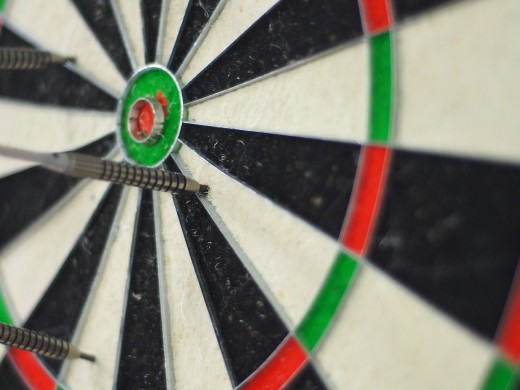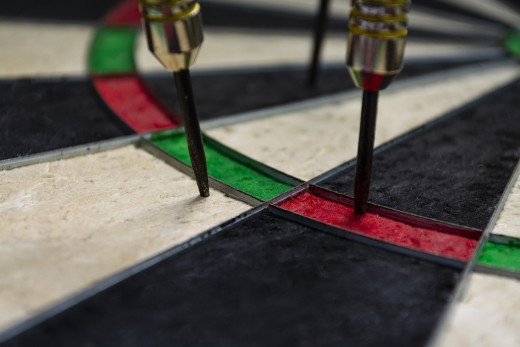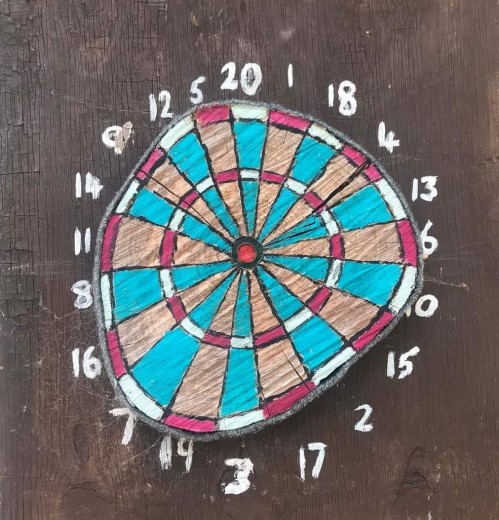Thursday, August 1, 2019
Column CM66
At the Beach
On the fourth day of the tournament the sun was shining from a blue sky and it was very warm…
As did a lot of tourists, I walked to the beach which is to be sure one of Blackpool’s main attractions from the beginning. Some say Blackpool’s beach is the second most beautiful beach of the world – seven miles of golden sand (most of it underwater at high tide). One finds the quietest stretches around the South Pier or north of the North Pier while across from the Blackpool Tower and around the Central Pier are the most people.
At the quiet parts of the beach in the South of Blackpool children and teenagers can still experience an amusement from Victorian times – donkey rides.
Traditionally you can find the name of the donkey on the headgear and traditional as well still today the most popular name is Daisy.
Probably donkey rides first were offered in 1885 in Bridlington and the donkeys at this time probably were work animals from the cockles industry. For some time, donkey rides in Blackpool were discredited as not all donkey owners treated the animals well. So now, to protect the welfare of the donkeys a license is required. Furthermore, only donkeys with a health certificate – which has to be renewed every year by a vet – are allowed to work.
Each day has to start with breakfast in the stable before the animals work at the beach. Riders cannot weigh more than 50 kg. The donkeys’ work cannot exceed 48 hours in a week and always on Fridays they have a day off…
In the first match of the second round Max Hopp played Michael Smith. From the start Hopp played well while Smith couldn’t find his doubles. So Hopp was 4-1 up before the first break. It had been with the same score that Smith went into his first break against Jamie Hughes and to be sure, as in the match against Hughes, Smith was “in” the match with Hopp and after the break began to recover.
Smith was scoring much better than Hopp but still wasn’t finding his range on the doubles – so Hopp got a lot of chances. Often enough he was able to use them and Smith never really was able to pull clear.
But Hopp couldn’t get a match winning advantage either and at 10-10 the match went into the tie break.
In the first leg of the tie break Hopp had a chance to win the leg but couldn’t hit tops and Smith won the leg. In the second leg Smith threw some high scores and hit the winning double.
Hopp again showed a good performance but in contrast to his first opponent Dave Chisnall, Michael Smith just was the better player by the end of the match. Without his double trouble he would not have needed a tie break to win the match.
James Wade versus Mensur Suljovic was the next match. Wade usually is one of the players who has a problem with Suljovic slow pace but this match was very even from the beginning. Wade went into the firs break with a 3-2 lead.
At the second break it was five all. The averages were similar, the hitting rate on the doubles was very similar as well although Wade was a little bit better.
Suddenly, Suljovic managed to win three legs in a row and he was 8-5 in the lead. But Wade started to catch up while Suljovic seemed to run out of steam and it was 8-8.
This match went into the tie break as well but unlike Wade’s first match this time no sudden death leg was needed to decide the match – Wade won 13-11. He had been more clinical on his doubles – simple as that.
Gary Anderson started his match against Mervyn King as if he was afraid to miss his train. He scored really well but the rush was not good for his doubles and Mervyn King was 4-1 up before the first break. And he was 6-4 up before the second break as well.
Anderson improved and to the delight of the crowd drew 6-6. Then he even managed to get in front – but not for long.
King didn’t intend to give in and found another gear. He overtook the reigning champion and won in the end 11-8. During the last three Legs Anderson was no longer in the match and he left the stage at express-train speed. As is had been warm outside it now was very warm inside as well and probably on stage it was unbearably hot. It looked to me as if King had far less problems with that than Anderson.
The last match of the night saw three-times world champion against three-times world champion…
Glen Durrant looked the more tense at the start of his first match and he started a little bit wobbly as well. It might have been the hype over the match was one of the reasons for it.
Michael van Gerwen was more clinical on his doubles while Durrant scored better and was 3-2 in front before the first break. It was a deserved lead as van Gerwen’s average was just over 90.
van Gerwen improved but Durrant was still in the lead before the second break. But van Gerwen improved more and more and the match got closer and closer.
Both players felt the pressure and to be sure the heat on stage as well.
Briefly, it looked to me as though Durrant was about to give in but he recovered and the merciless head-to-head race went into the tie break.
It was rather astonishing that it was the far far less experienced (in such situations) Durrant who kept his nerve while van Gerwen was running on empty.
Durrant won the two legs he needed for the win and progressed at his debut with strong performances, strength of nerve – full of emotion and cheered by the crowd – into the quarterfinals. And Michael van Gerwen…
…for the second time in a row in this tournament would travel home early. The World Matchplay doesn’t seem to be his tournament.
What a night of darts!
Besides being tired I felt rather pumped on my way home as well. It was still hot outside and from afar one could hear rolling thunder.





